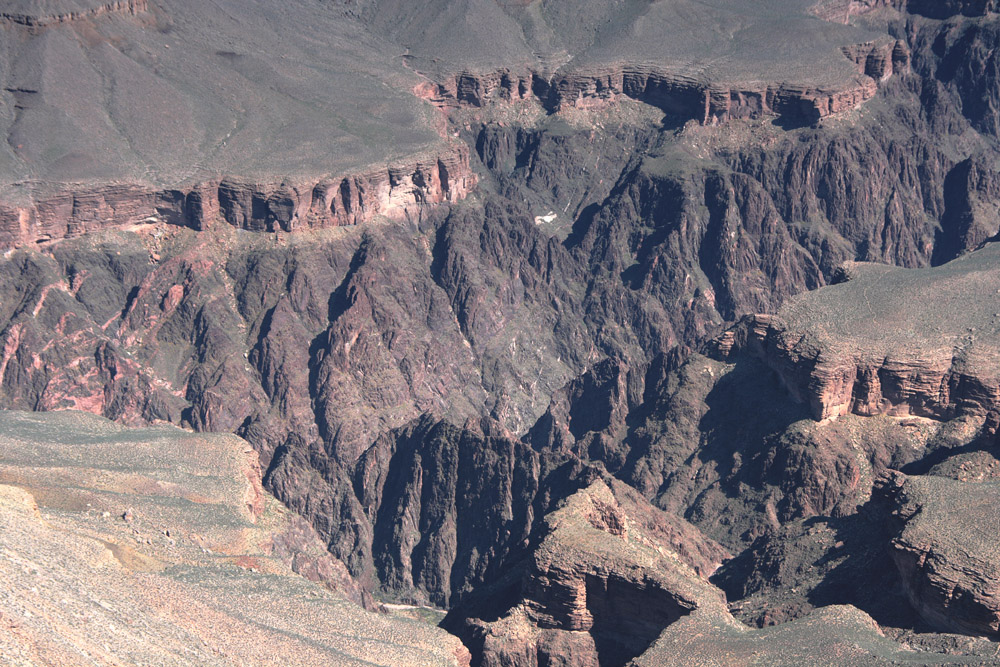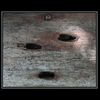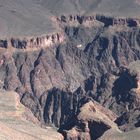Geology 101...Vishnu Schist...Grand Canyon
The oldest exposed rock layer or group in the Grand Canyon is the metamorphic Vishnu Schist. Dating between 1.7 billion and 2 billion years old, it forms the dark heart of the Colorado River's inner gorge. The Vishnu Schist can be glimpsed for relatively short stretches at numerous places along the south rim of the Grand Canyon on the west rim trail. This picture is from somewhere between Hopi Point and Mohave Point. The distinctive reddish ribbon of steep cliffs that caps the Vishnu Schist is Tapeats Sandstone. It is a mere 550 million (0.550 billion) years old. Where did all the rock go that was laid down between 1700 million and 550 million years ago? John Wesley Powell, an early explorer of the canyon, called this "The great unconformity". The answer is that it all eroded away.
Throughout this section of the canyon, the characteristic sequence: Vishnu Schist (dark and not obviously layered or fractured; showing odd gullies, fins and peaks); Tapeats Sandstone (reddish; vertical faces, implying hardness; level layers); Bright Angel Shale (muted and grey-green; soflty sloping, implying relative softness) dominate the view.
For a good, short summary of Grand Canyon geology, see, among other places on the web: http://en.wikipedia.org/wiki/Geology_of_the_Grand_Canyon_area










Alin Neamtu 23/11/2008 10:23
++archiek 20/06/2008 17:15
Thanks for the lesson and photo both very nicely done. -archie